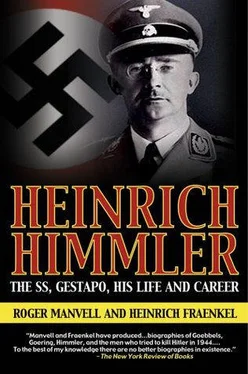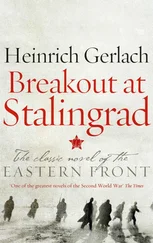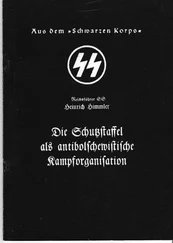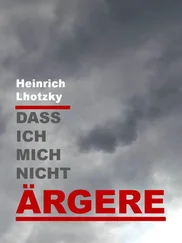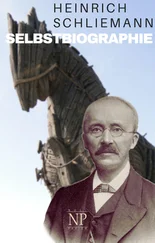Himmler had learned to live and work by regulations, and on 1 November 1933, the rules governing life and death in Dachau were completed by Eicke under Himmler’s exacting direction. The legalistic phrasing, the comfortable work of men sitting at desks as Himmler so often sat, covers with a bureaucratic gloss the acts of terrorism which the careful rules incite. For example:
‘The term commitment to a concentration camp is to be openly announced as “until further notice”… In certain cases the Reichsführer S.S. and Chief of the German Police will order flogging in addition to detention in a concentration camp… In this case, too, there is no objection to spreading the rumour of this increased punishment… to add to the deterrent effect. Naturally, particularly suitable and reliable people are to be chosen for spreading of such news.
‘The following offenders, considered as agitators will be hanged: anyone who… makes inciting speeches and holds meetings, forms cliques, loiters around with others; who for the purpose of supplying the propaganda of the opposition with atrocity stories, collects true or false information about the concentration camp…’ 16
Himmler’s secret pursuit of power began outside Prussia, where he realized Goring was omnipotent. Roehm, watchful of the situation, realized that Himmler and Heydrich formed a powerful team and would not be content with the minor place in the Nazi state which had been allotted to them; he decided it might be wise not to alienate the leaders of the S.S. By the summer Göring’s initial energy was spent, and his pleasure-loving nature, combined with the desire to accumulate other positions of importance under Hitler, led him to slacken his control over his subordinates, who were more directly involved in the struggle for supremacy developing between the S.A., the S.S. and the Gestapo. Daluege, Göring’s Chief of Police, had by now decided to keep in touch with Munich.
Artur Nebe was the principal S.S. man among the many working in the Gestapo; Diels claims Nebe was spying on him for Heydrich, and that Karl Ernst, Roehm’s Chief of Staff of the Berlin S.A., was actually threatening his life until Roehm ordered him to desist and suggested to Diels he had better join the S.S. for his own self-protection. The opportunity to do so came after an S.S. raid on Diels’s flat had led to an open breach between Goring and Himmler, which they had the good sense to heal at a meeting in Berlin. Diels was placated with an honorary commission in the S.S. But this did not save him from having to escape in October from threatened arrest by the S.S. on an order, he claimed, issued by Goring himself. This happened after Goring had been shown evidence prepared by Heydrich of Diels’s anti-Nazi activities before his adoption by Göring.
Whether Diels was telling the truth or not, his story is important because it reveals the gradual growth in stature of Heydrich and Himmler in the eyes of the men in Berlin. Germany consisted of many semi-autonomous states both large and small, of which Bavaria, where Hitler’s Nazi faction had originated, was now second only to Prussia in importance. Himmler knew as well as Goring that Hitler wanted to unify the control of Germany, and as a reward for his supreme efficiency in Bavaria he asked the Führer to extend his powers in the remaining states of Germany. In the race to build single police-states, Goring had made a powerful initial spurt, but he lacked the staying-power to win. From October, Himmler began to gather for himself the offices of Chief of the Political Police in the remaining states of Germany, completing the process by March in the following year. 17
This assimilation of special powers in the German states through acquiring the office of Commander of Political Police was illegal because Frick, the Nazi Minister of the Interior, was never consulted, in spite of the fact that the provincial governments were responsible to the Ministry of the Interior for their police administration. To cover his activities, Himmler always declared himself the servant of the provincial governments when, after parading the local S.S. formations in order to intimidate the officials, he assumed his new command on their behalf. Frick, in the face of Hitler’s policy of the gradual centralization of power, was all but helpless to defend his own rights as Minister against these obvious encroachments by Himmler into his area of responsibility. According to the anti-Nazi Gisevius, he roused himself to forbid the states to create further offices without his direct consent, but Himmler circumvented this by forcing the finance ministers of the provincial governments to subsidize his S.S. formations and the concentration camps in their area. In one way or another, Himmler built up the network of his powers until the web spread over the whole of Germany with the exception of Goring’s Prussia.
At the same time, during the autumn of 1933, Heydrich had established in Berlin, in open defiance of Goring, a section of the S.D. at premises in Eichen-Allee, and in November Gregor Strasser, who had once been Himmler’s employer, made his celebrated pun in a note sent to Hans Frank: ‘Hitler seems to be entirely in the hands of his Himmlers and Anhimmlers (adorers).’ Nevertheless, it was Roehm who received official promotion to Hitler’s Cabinet in December 1933, a step which so alarmed Goring that it made him carefully reconsider his future relationship with Himmler.
Gisevius, at that time still an official in the Gestapo, has described how he became involved in the intrigues between Daluege, Diels and Heydrich. In February 1934 he was invited, to use a polite term, to attend a conference at the barracks of the S.S. Leibstandarte in Lichterfelde along with Nebe. They went, thinking their last hour had come; to their surprise, they were greeted by Dietrich, Commandant of the Leibstandarte, with flattering messages from Himmler and Heydrich. Their stand against corruption in the Gestapo was specially commended, and they were invited to sit down there and then and write a report of their ‘grievances’, as Dietrich put it. They did so, recording many instances of ‘extortion, torture and killing’. As Gisevius puts it: ‘It was always a favourite S.S. tactic to appear in the guise of respectable citizens and to condemn vigorously all excesses, lies or infringements of the law. Himmler, when talking to a small group, sounded like the stoutest crusader for decency, cleanliness, and justice.’ Undoubtedly Himmler believed in his mission, like a strict schoolmaster, while Heydrich went on filling his files for the final assault on the citadel of Prussia.
To emphasize the need for the co-ordination of the political police under a single authority, Heydrich made use of a report from one of his agents that a Communist plot was forming, quite unknown to Goring’s Gestapo, to murder Goring. Arrests were made before either Goring or Hitler was informed, and Himmler used the plot to press the Führer to place the whole police force of Germany under the control of the S.S. After some hesitation, Hitler agreed, and with Goring’s consent the Prussian Ministry of the Interior was merged with the Reich Ministry of the Interior, and its political police, including the Gestapo, placed under Himmler as the new head of the national secret police force. To soften the transfer of power, Goring as Prime Minister of Prussia remained nominally responsible, but on 10 April he addressed the assembled Gestapo in the presence of Himmler and Heydrich, explaining to them that Himmler would in future take charge of their work as his deputy. He ordered them to support Himmler in the struggle against the enemies of the State, while Himmler in his turn protested his loyalty and gratitude in an excess of delighted subservience. ‘I shall forever remain loyal to you. Never will you have anything to fear from me’, he declared. On 20 April 1934 Himmler formally took over the Gestapo, with Heydrich as his deputy. The links in the chain of office were now complete.
Читать дальше
